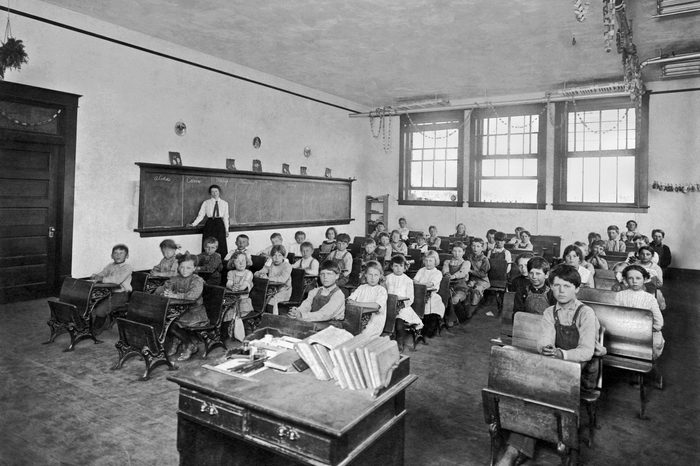The process of educational progression in the United States was only existent because of the ever lasting economic competition between other countries. The realization of success from other countries posed as a harsh reality for politicians. They were concerned for the United States, but could not understand why the country was "losing" the economic battle. They searched and grasped at any solution to be the reason for the country's faults and weak links. Eventually, the answer came to be that the educational system was failing the people of the United States. Politicians noticed that other countries were producing and graduating with such "highly skilled workers", and their knowledge and success was assisting their respective country in their economic successes (Mondale 175). With that consideration in mind, politicians then analyzed the status of the educational system that existed at their time and expense in the United States: in America, "teachers talked most of the time, children listened, read the textbooks, and recited answers to the teachers" (Mondale 175). But how much of this information was actually being retained and used in the daily lives of these children? After much observation, politicians concluded that the United States was severely lacking in knowledge and educational standards and began to "[crack] down on students", making sure that "students were meeting these new standards" (Mondale 187). The politicians wanted to change the way the students were educated in order to take a lead in the competition of education. This period of time became known as the "learning crisis" because of "low standards, lack of purpose, and a failure to strive for excellence" (Mondale 184). Now, for the first time in the history of education, politicians noticed the numbers of students rise in attendance. The burst in students attending school in a quantitative manner conflicted with the lack of quality of the American education. Schools did not consider “more than 71 percent of seventeen-year-olds [graduating] from high school”, not to mention that many students attending to begin with. This created major chaos in the schools with one goal to resolve it: “‘restore quality to education by increasing competition and by strengthening parental choice and local control’” (Mondale 184). Now with students attending school and benefitting from the increase in educational quality, the economic reputation of the United States was comparable to other countries, displaying a fair competition in the battle of education.

Personally, I find it rather interesting to learn that because of the blame placed randomly on the educational system in the United States for the faults of our economic status, our educational quality had no choice but to better itself. If the blame had been put on any other functioning aspect of our country's society, that too would have benefited from the consequences, and would have therefore adjusted the economic status to thrive. I cannot say that our education in the United States is perfect where it is, but because of the learning crisis and economic boom, our country has improved significantly in education.
